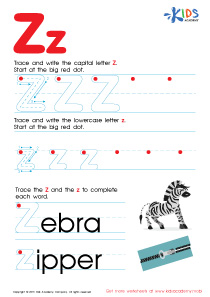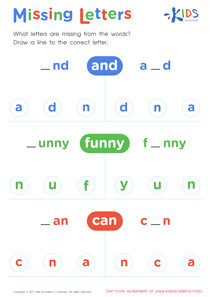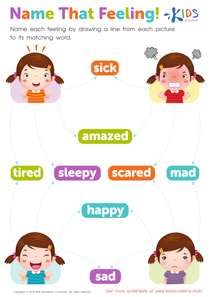Fine Motor Skills Extra Challenge Tracing Letters Worksheets for Ages 4-6
7 filtered results
-
From - To
Enhance your child's fine motor skills with our engaging "Fine Motor Skills Extra Challenge Tracing Letters Worksheets" designed for ages 4-6! These fun worksheets offer a unique approach to learning, blending essential letter tracing with intricate designs that captivate young minds. Each page encourages focus, strengthens hand-eye coordination, and fosters handwriting readiness. Perfect for home or classroom use, our worksheets provide extra challenges that promote dexterity and precision in a playful way. Let your little learners embark on a creative journey as they master the alphabet while developing their fine motor abilities. Download these worksheets today and watch their skills flourish!


Letter A Tracing Page
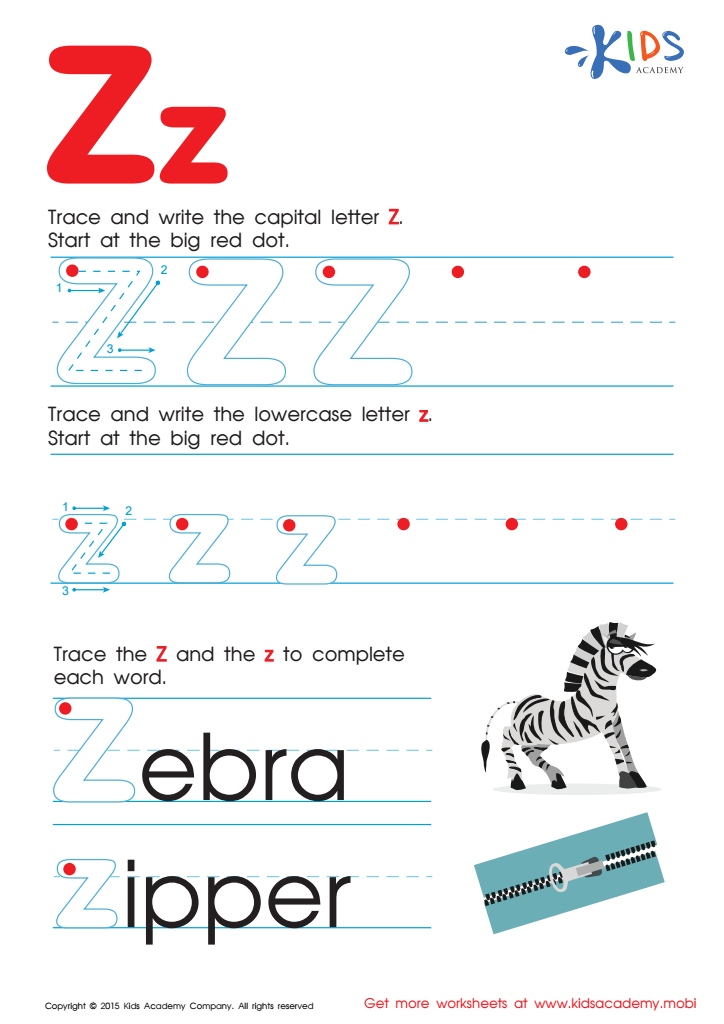

Letter Z Tracing Page


Letter R Tracing Page


Letter X Tracing Page
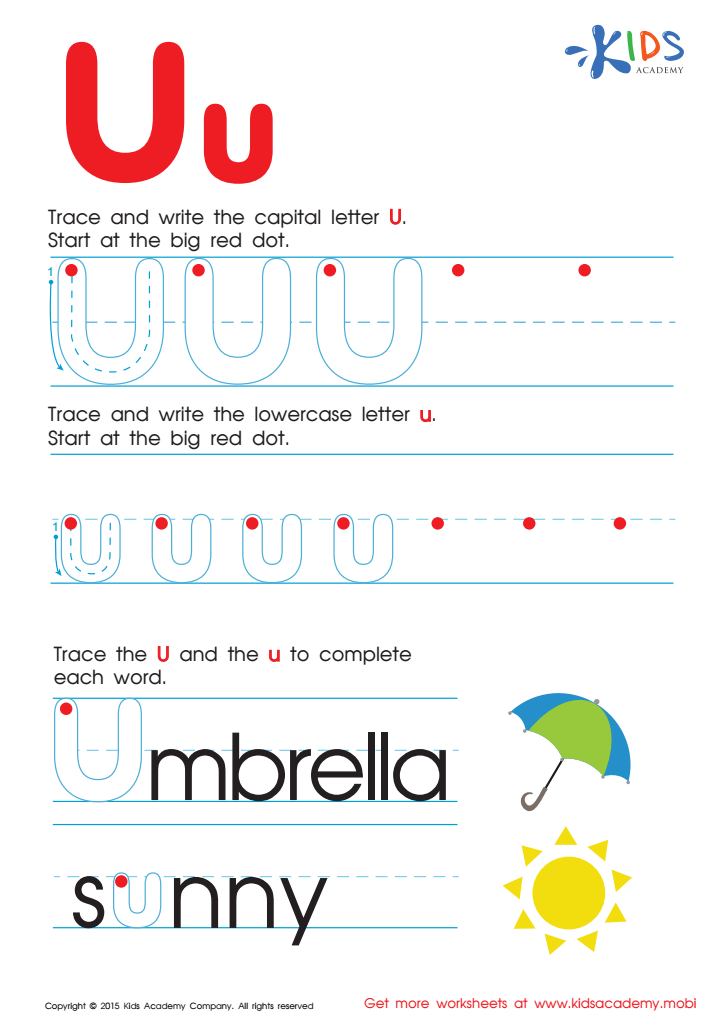

Letter U Tracing Page
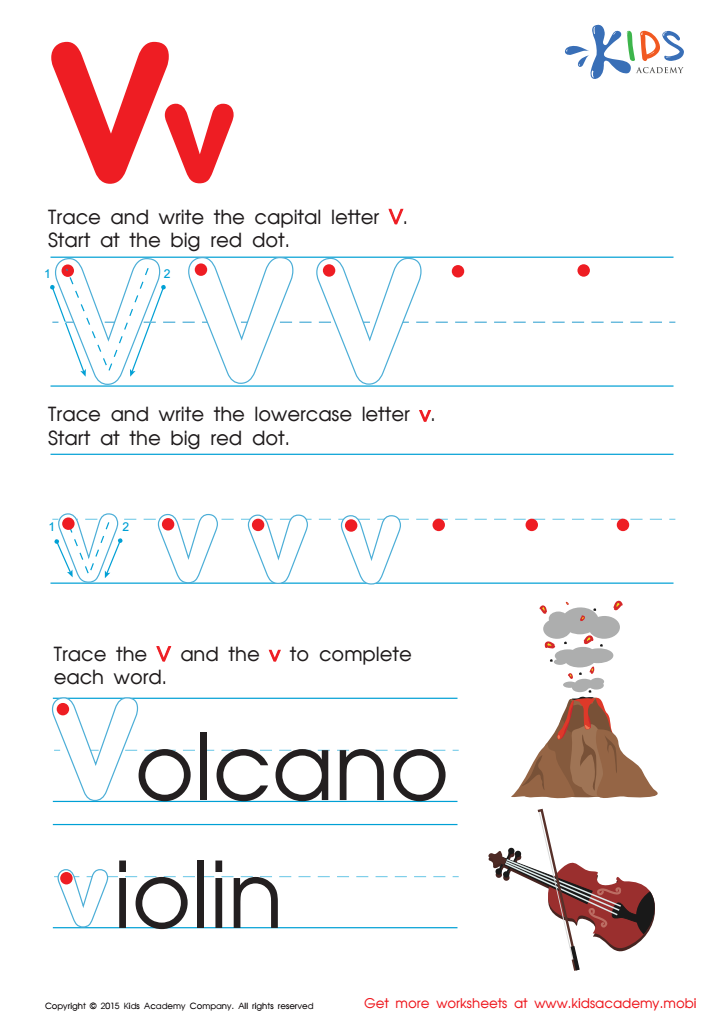

Letter V Tracing Page
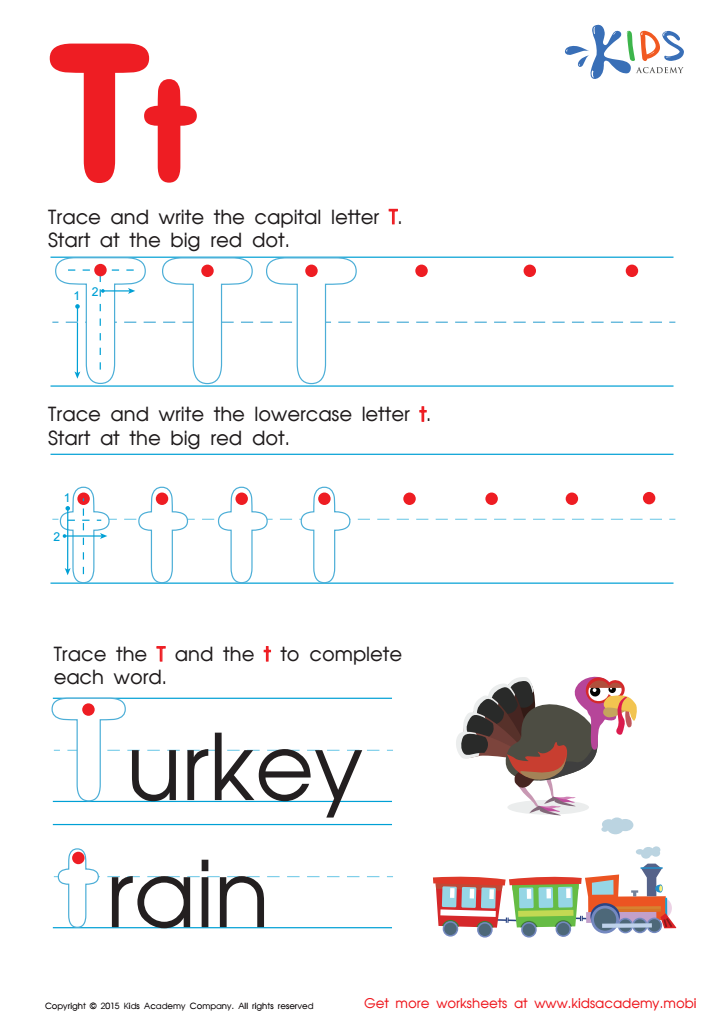

Letter T Tracing Page
Fine motor skills are essential for children's overall development, particularly for tasks they encounter in academics and daily life. Extra challenge tracing letters for ages 4-6 presents an effective way to refine these skills. By engaging in tracing activities, children enhance their hand-eye coordination, dexterity, and finger control, crucial for future tasks like writing, cutting, and manipulating small objects.
For parents and teachers, nurturing these skills supports the children's school readiness and confidence in their ability to engage in early literacy activities. Mastery of fine motor tasks can significantly impact a child’s writing ability and academic progress, fostering strong foundations for language and communication skills.
Moreover, tracing letters not only aids dexterity but also emphasizes the recognition of letters and phonetic sounds, paving the way for reading skills. By incorporating fun and challenging activities, such as tracing that encourages joy in learning, educators and parents can kindle a lifelong interest in reading and writing.
Ultimately, by prioritizing fine motor skills through targeted challenges like letter tracing, we empower children with the essential tools for success both in and out of the classroom, fostering confidence and competence during their formative years.
 Assign to My Students
Assign to My Students









